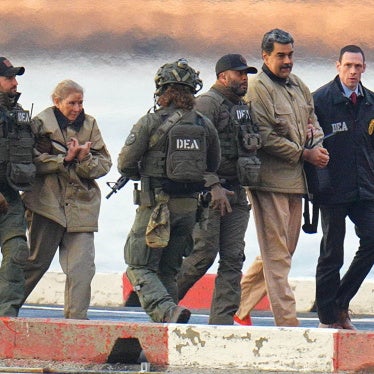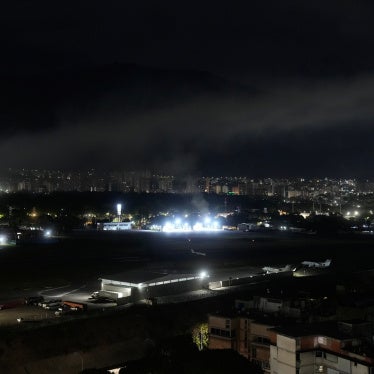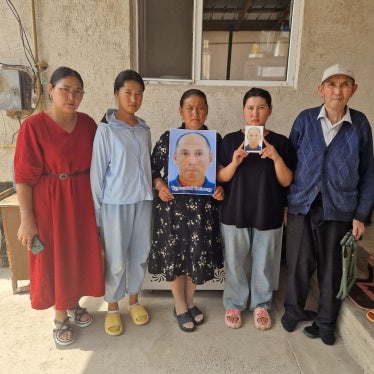The Peruvian government should act to prevent the unlawful use of lethal force by security forces during crowd-control operations, Human Rights Watch said today in a letter to President Ollanta Humala. Fifteen civilians were killed during protests, allegedly by security forces, in the first year of Humala’s presidency.
A Human Rights Watch investigation into one of the most recent cases – involving the shooting deaths of four civilians during a protest in Celendín, Cajamarca in July 2012 – found evidence that strongly suggests that the deaths resulted from the unlawful use of lethal force by the security forces.
Human Rights Watch also expressed concern that a bill awaiting a final vote in Congress would authorize the use of lethal force in situations not permitted under international law.
“When violence erupts during public protests, the authorities have an obligation to reestablish order, but they need to fully respect the rights of protesters and bystanders alike,” said José Miguel Vivanco, Americas director at Human Rights Watch. “It can be a very tough job, but there’s no excuse for not doing it right. The police should be given the tools and training they need to protect themselves and others from violence, and they should be held accountable when they use unlawful violence themselves.”
On July 3, four civilians were shot dead and 16 wounded by gunfire in Celendín when police and soldiers sought to disperse demonstrators protesting against a gold mining project that would affect their water supply. The demonstration, which began peacefully, turned violent when a group of demonstrators tried to force their way into the city hall. The Interior Ministry announced in a news release that two police officers and a soldier guarding the building suffered bullet wounds in the legs. According to local news reports, protesters also threw stones and fired homemade rockets at security forces.
Under international norms, the use of firearms against the protesters would have been permissible only if those using them reasonably believed they needed to do so to protect themselves or others from serious injury or death.
Evidence gathered by Human Rights Watch strongly suggests that the security forces were not facing an imminent threat at the time the fatal shots were fired. According to multiple witnesses, as well as hospital records, the shooting of the civilians occurred more than an hour after the police officers and soldier had allegedly been shot. Residents who witnessed two of the fatal shootings of civilians reported that the victims were standing on the street passively observing events when they were shot.
The soldiers were deployed in large numbers after police lost control of the situation in Celendín, in large part because they ran out of teargas, the top police commander in Cajamarca told Human Rights Watch. The Humala administration recently announced plans to purchase US$10 million worth of protective equipment and non-lethal weaponry for the police.
“In addition to the proper equipment, the government should provide its security forces with clear and appropriate rules on the proper use of force, and leave no doubt that anyone who breaks these rules will be held fully accountable,” Vivanco said.
Human Rights Watch also raised concerns regarding the use of the armed forces in crowd-control operations. Military involvement in policing activities is regulated by Decree 1095, which was adopted in 2010 by García during his presidency. Decree 1095 expands the use of military jurisdiction over “illicit activity” by military personnel, and couldbe used to prevent civilian courts from trying cases of human rights violations against civilians by the military.
The Peruvian Congress recently granted President Humala temporary authority to legislate on a wide range of issues related to the role, structure, and functions of the police and armed forces, including specifically to reform Decree 1095.
Based on its findings in Celendín, as well as extensive interviews with senior government officials, Human Rights Watch identified key measures that Peruvian authorities should take to prevent further misuse of lethal force. These include:
- Investigating thoroughly all killings of protesters and bystanders and appropriately sanctioning any security force members found to have used unlawful force;
- Providing security force members involved in crowd-control operations with adequate equipment, training, and guidelines on the proper use of force;
- Modifying the proposed legislation that would authorize the use of force in violation of international norms and would guarantee immunity for unlawful killings by police;
- Amending Decree 1095 to ensure that military personnel accused of committing human rights violations against civilians be investigated and tried by civilian authorities.







